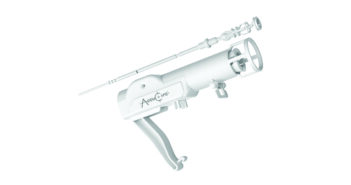The doctors in What’s Left Out are rarely portrayed as heroic—and sometimes they’re the antithesis. How did they end up that way?
One of the impulses driving me to write about medical worlds—because I didn’t start out that way—was the impression that many stories written by physicians followed standard narratives that didn’t coincide with my complicated personal experiences as a physician, student, teacher, patient, and overall observer of medicine. Sure, physicians (and nurses and midlevel providers) are heroic at times, but we’re also human, facing great challenges, and when stressed, the same person can inhabit contradictory behavior. That’s what interests me, probing this turbulent emotional territory that, true to Rhode Island, is rich with passion, drama, humor, and jaw-rattling potholes.
How did your personal experience as a physician play a role in these stories?
Donald Barthelme famously once wrote that writing is a process of dealing with “not-knowing.” Personal experiences and intense emotions might serve as a source of trouble, fascination, and unrest that provoke me to think of narrative possibilities. But that only starts the process of filling pages. Eventually, at some point, the material makes its way into fiction. The stories come to life, imposing demands and asking questions.
Physician-writers who choose to write about the medical experience must carefully balance their moral and legal duties to safeguard patient privacy and confidentiality with their obligation to readers and creating what they believe to be important and powerful stories.
One of the biggest challenges of my work as an emergency physician is gaining a measure of comfort with uncertainty. After 20 years of practice, I still stay awake nights thinking about the patients I cared for during that ER shift. In that way, my patients continue to live in my consciousness. Interestingly, a frequent comment about my stories points to their lack of closure, though I spend a lot of time with my endings. Maybe the open-ended nature of my clinical work has influenced the narrative structure of my writing. Regardless, I like my stories to end in such a way that readers wonder about the futures of the characters beyond the page.
In “Calling the Code,” the doctor lies to the sister of the deceased on the phone, underscoring an ongoing discussion, in medical education and beyond, about how to have difficult conversations with patients and their families. Does the plot of this story have a basis in reality?
Breaking bad news is difficult, and each instance can be difficult in unexpected ways. We must be cautious when educating students that there is a “right” way to do it. These situations are so complicated. You’re thinking about the patient who just died, working through your own feelings. Could I have done something differently? Did I miss anything? This story emerged after several experiences when the family discussion was so unusual and bizarre that I found it hard to keep grief at the center of the conversation.
The doctor rationalizes his guilt about lying because of her family’s problems—they seem to care even less than he does. With so much at stake, do doctors blame others to assuage their own guilt?
We serve communities challenged by terrible and unimaginable burdens and hardships. Patients often engage in habits and make choices that contradict their best interests. Parsing out blame is hard because the nature of bad choices presumes that patients have choices to begin with. Even so, there are particular ER shifts when it feels I care more for my patients than they care for themselves. At the same time, there are many patients doing everything that is humanly possible to care for themselves or loved ones, but they’ve fallen so deeply into the cracks of our fragmented health care system that whatever I can offer doesn’t come close to meeting their complex web of needs.
Many of the stories border on the surreal. For example, in “The Telephone Pole,” a moving utility pole is to blame for a series of drunk driving deaths—not the drivers themselves. How did you arrive at these unconventional story lines?
My imagination is inspired by my experiences as a physician, though health care has become surreal on its own and doesn’t need any help from fiction writers. Through my work I’m trying to make sense of the non-sensible. As an emergency physician in the region’s trauma center, I’m part of a team that cares for a lot of drunk drivers who crash into poles, some repeatedly, and it seems often they escape legal consequences. Why is that? If they’re not at fault, it must imply that telephone poles are to blame, right? I wanted to explore such a community. In particular, would this absurd belief serve a necessary social value or purpose?
This is your second book of short stories. You’re a practicing emergency physician, co-director of the scholarly concentration in Medical Humanities and Ethics, director of the Program in Clinical Arts and Humanities, and associate professor at Alpert Medical School. You’re a husband and father. How do you find time to write?
Honestly, it’s becoming harder and harder. I write slowly, and I rewrite extensively. So, I’m lobbying for a 28-hour day…




